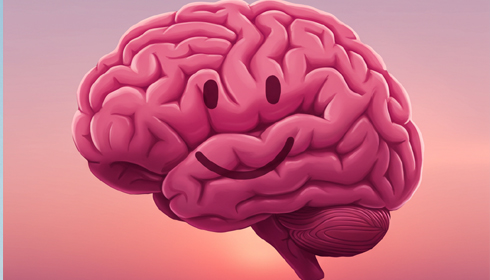
Ottawa University Scientists Uncover Serotonin’s Secret Role in Decision-Making
A recent study conducted by researchers at the University of Ottawa has uncovered significant insights into the brain's decision-making processes, highlighting the complex role of serotonin—a chemical commonly linked to mood and happiness—beyond its traditional associations.
Serotonin neurones seem to play a role beyond just responding to pleasure or pain; they may assist the brain in forecasting the potential rewards that lie ahead.
Featured in the journal Nature, the research presents the concept of a "prospective value" signal. This signal, transmitted by serotonin neurones, aids the brain in assessing the potential worth of upcoming results.
This discovery has the potential to transform the understanding of decision-making processes, learning methodologies, and approaches to mental health care.
“Our research explores the inquiry: What insights does serotonin provide to the brain?” “In summary, our findings indicate that its message aligns closely with anticipated future rewards,” stated senior author Dr Richard Naud, associate professor in uOttawa’s Department of Cellular and Molecular Medicine.
Serotonin has been referred to as the brain's "pleasure chemical" and serves as a primary focus for numerous antidepressant medications, including SSRIs.
Nonetheless, its role has consistently been enigmatic, as it appears to react to both positive and negative experiences—and even unexpected events.
In this recent investigation, scientists employed reinforcement learning models, a form of artificial intelligence frequently applied in neuroscience, alongside brain recordings from the dorsal raphe nucleus, an area abundant in serotonin-producing neurones.
The findings were unexpected: serotonin neurones exhibited peak activity when participants encountered unforeseen rewards.
This indicates that serotonin plays a role in the brain's ability to not only enjoy positive experiences but also to recalibrate its anticipations for future events.
Dr Jean-Claude Béïque, a co-author and professor in the same department, elaborated, “Your brain must evaluate the anticipated value of the actions you consider and execute as you engage with a dynamic world, questioning, ‘What is the worth of this choice compared to that choice in this specific context?’” That presents a significant challenge.
“Our understanding is that serotonin plays a role in encoding the anticipated value of specific environments or actions, which ultimately influences daily decision-making,” he added,
The findings could significantly influence our comprehension and management of mental health issues. The role of serotonin extends beyond mood regulation, sleep, and appetite; its involvement in the brain's ability to anticipate future rewards introduces a fresh perspective on the mechanisms behind various medications and therapies.
The function of serotonin in managing surprise and determining the significance of future occurrences sheds light on the brain's intense reactions to unforeseen results—whether positive or negative—and how this influences our decision-making,
This study provides a valuable and insightful perspective on the intricate role of serotonin in the brain.
For an extended period, it has been overly simplified as merely the “feel-good chemical”, when in truth, it serves a more complex role: aiding us in anticipating future outcomes and making more informed decisions.
In light of the increasing mental health challenges we encounter, such essential research has the potential to guide the development of improved therapies and tailored treatments.
Grasping the mechanisms by which the brain assesses future scenarios could be crucial for enhancing emotional and cognitive well-being for countless individuals.